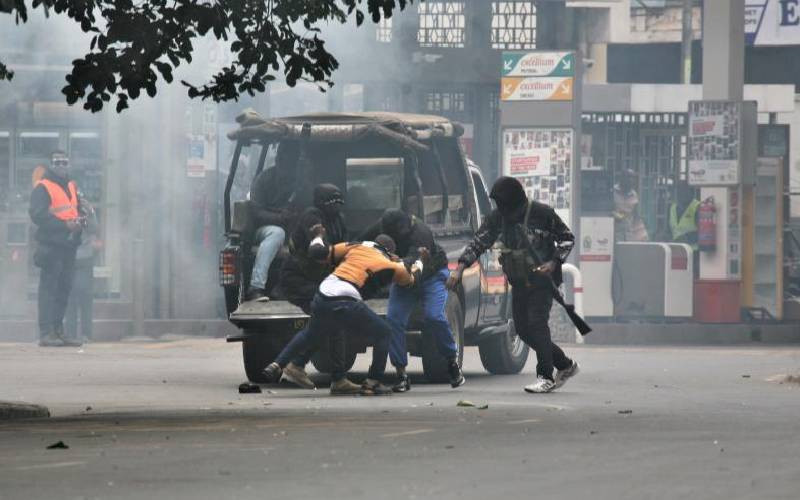No hooded, masked and plain cloth police during protests, court rules
National
By
Nancy Gitonga
| Apr 30, 2025

The High Court has barred the Inspector General of Police from deploying officers in civilian clothes or with concealed identities to manage public protests in the country.
In a landmark judgment delivered on Wednesday, Justice Bahati Mwamuye ruled that all police officers assigned to handle public assemblies, demonstrations, or picketing must be in official uniform and remain identifiable at all times.
"A declaration is hereby issued that any law enforcement officer deployed to maintain law and order during an assembly, demonstration, or picketing must be in uniform and shall not, in any way, conceal their identity, including by obscuring their face, so as to remain unidentifiable," he ordered.
The court emphasized that visible identification is essential to uphold accountability and public trust in law enforcement.
READ MORE
Inside Kenya's push for clear green building guidelines
Nyeri's real estate boom: How installment plan is redefining property investment
Oil marketer Galana opts for direct customer engagement as it celebrates 25 years
Global tech firm joins race for EA embedded insurance sector
Two Kenyans among 10 global entrepreneurs eyeing Sh7.6m innovation prize
Businesses urged to patch software vulnerabilities
How Kenya Power lost Sh11.8 billion
Sacco regulator probes rapid growth of dormant members
The decision follows a case filed by the Law Society of Kenya (LSK), challenging the legality of police conduct during the Finance Bill 2024 protests held on June 18 in Nairobi's Central Business District, during which activist Rex Masai was fatally shot.
"The conduct of police officers unmasked and in uniform who carried out unlawful arrests of individuals exercising their right to picket under Article 37 of the Constitution amounted to a violation of those individuals' rights," Justice Mwamuye ruled.
The court found that officers deployed on that day acted unlawfully and violated constitutional protections.
Justice Mwamuye further noted that the presence of uniformed officers provides a safeguard for demonstrators and the general public, while any attempt to obscure identities encourages impunity.
The judge also invalidated the government's attempt to restrict protests in certain areas, terming the proposed limitations as unconstitutional.
"A declaration is hereby issued that the proposed limitation on the exercise of the right under Article 37 in the subject area was blanket, overbroad, and based on mere convenience. It did not meet the threshold set out under Article 24 of the Constitution," he stated.
The ruling comes after LSK sued the Inspector General and identified an officer, Isaiah Ndumba Murangiri, as allegedly responsible for the shooting of Rex Masai.
The LSK argued that most instances of police brutality and killings during protests involve officers without proper identification or uniforms.
Although the Director of Public Prosecutions Renson Ingonga had earlier said no witnesses had come forward to help identify the officer responsible for Rex's death, LSK insisted in court that Murangiri was the officer involved.
Justice Mwamuye concluded that the violation of constitutional rights alone was sufficient to grant relief in the matter.
"Accordingly, the petition succeeds. The petitioners have succeeded, including in their challenge to the actions of the police officers on June 18, 2024," the court ruled.

